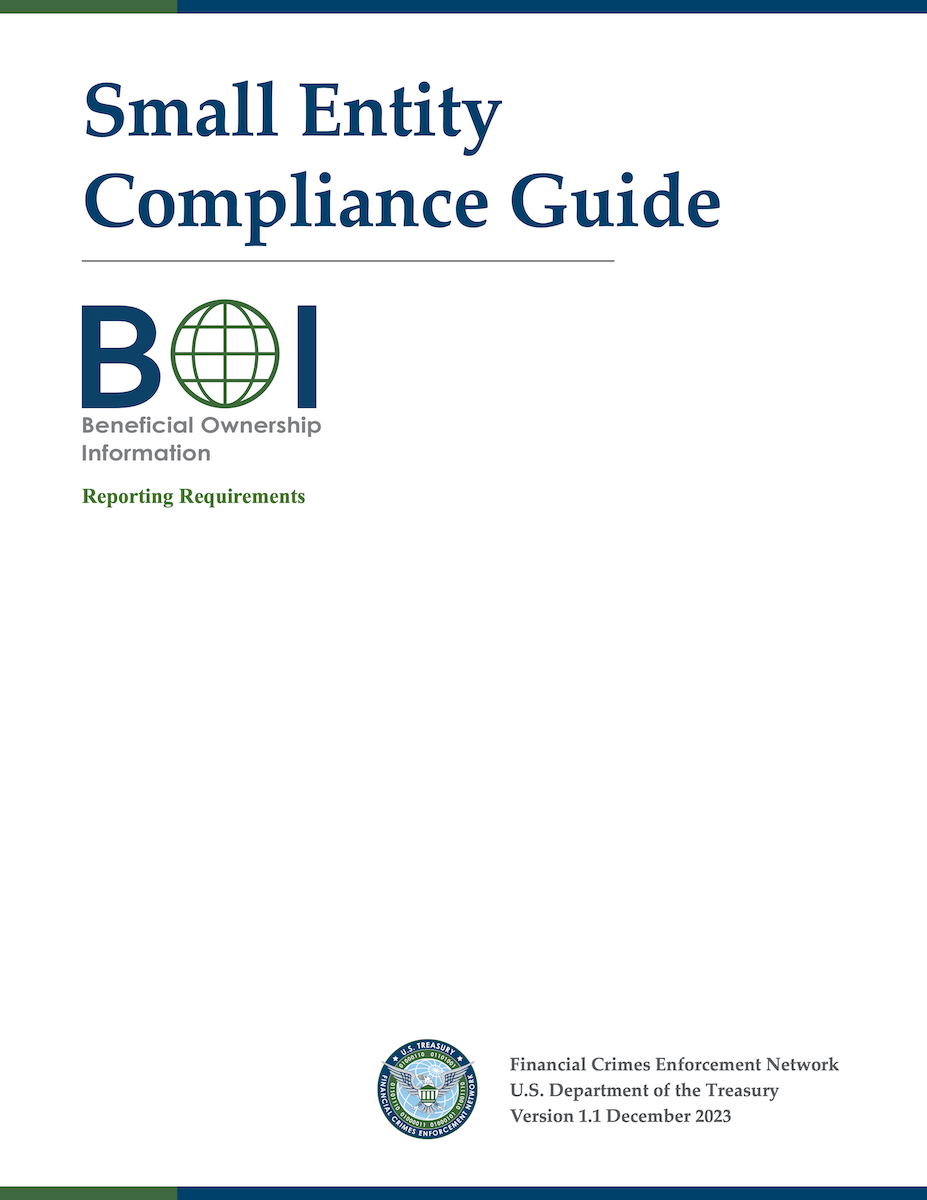Update: The Corporate Transparency Act is in litigation
In March 2024, the Act, which required FinCEN collect beneficial owner information from reporting companies, was ruled unconstitutional by an Alabama District Court Judge. This ruling is on appeal in the 11th Circuit Court of Appeals. There are several other ongoing constitutional challenges to the Corporate Transparency Act. It is unlikely that a final judgment on its constitutionality will occur by the end of 2024. In the meantime, its reporting requirements remain in place.
On the first day of 2024, the Corporate Transparency Act’s Beneficial Ownership Information (BOI) reporting requirement went into effect. Implemented by the U.S. Department of the Treasury’s Financial Crimes Enforcement Network, this reporting requirement is meant to help prevent money laundering, financing of terrorism, corruption, and other activities that might facilitate criminality or threaten national security.
All “reporting companies” — the companies required to report under the Act — are now required to adhere to the BOI reporting protocol. Navigating this new framework can be incredibly difficult, with questions forming at every step of the process. What determines whether a company is a “reporting company” or exempt from the requirement? What are businesses required to disclose? What are the deadlines for reporting? Davillier Law Group is prepared to tackle each of these questions and help small businesses work through the new BOI reporting requirements.
Who Is Required To Report?
According to the Small Entity Compliance Guide, reporting companies are corporations, limited liability corporations, or companies “created by the filing of a document with a secretary of state of any similar office under the law of a State or Indian tribe”. The guide lists twenty-three exceptions from the reporting requirement, including companies whose shares trade on a major U.S. stock exchange and regulated entities such as banks and insurance companies. Generally, the companies that are exempt from BOI reporting are already subject to significant government oversight.
What Are You Required To Report?
So your company is required to report. Then what? The next step would be determining who the company’s beneficial owners are. A beneficial owner is defined as “any individual, who, directly or indirectly: exercises substantial control over a reporting company; or owns or controls at least 25 percent of the ownership interests of a reporting company.” Companies can have more than one beneficial owner and there is no limit to the number of beneficial owners that a company must report.
The distinction between substantial control and ownership interests is another area that can be confusing to grapple with, but there are specific indicators outlined in the Compliance Guide that point to which category a beneficial owner may fall into. For example, telltale signs that a person has substantial control in a business is they hold a senior officer position (i.e. Chief Operating Officer), can appoint or remove senior officers, and have the authority to make pivotal decisions within the company. Qualities of ownership interest, on the other hand, include rights and privileges associated with equity, stock, and voting. There are several exceptions to this beneficial owner definition, ranging from intermediaries to employees of actual beneficial owners, and there is nuance in the process of determining who meets this criterion.
Then there is the question of whether a company is required to report its “applicants,” which includes the person who filed the document that created a domestic reporting company, or who filed the document that registered a foreign reporting company. In addition to those who directly filed those documents, individuals who “direct or control” such filings also count as applicants. Any domestic reporting company created on or after January 1st, 2024, or foreign reporting company registered after January 1st, 2024, is mandated to report its applicants.
Once a company has jumped through the hoops of identifying who they need to report, there is more detailed information they must report, according to the 2024 BOI requirements. The reporting company itself, beneficial owners, and company applicants each have specific checklists of the information they must provide. These checklists can include but are not limited to: name, date of birth, identifying documents such as a non-expired driver’s license or passport, and address.
When Are You Required To Report?
Lastly, after identifying what exactly needs reported, it is important to know the deadlines which apply to any given company. According to the Financial Crimes Enforcement Network there are two separate deadlines which may apply. First, any existing companies must file a report by January 1, 2025. Any newly created or registered companies must file a report 90 calendar days after receiving actual or public notice that their company’s creation or registration is effective.
Existing companies, as defined by the Financial Crimes Enforcement Network are “Reporting companies created or registered to do business in the United States before January 1, 2024.”
Newly created or registered companies, as defined by the Financial Crimes Enforcement Network are “Reporting companies created or registered to do business in the United States in 2024.”
What Now?
Working through the BOI reporting requirement framework can be rather daunting, given its expansive and nuanced nature. But here at DLG, we are ready to make the process simpler. With complimentary consultations, DLG analyzes a business’s current state, focusing on ensuring that all requirements are met. DLG diligently narrows in on the details, looking to clarify elements such as: beneficial ownership and company applicant status, documentation and filings, and other pertinent components. Then after doing a comprehensive review and uncovering missed requirements, DLG can help companies fill in those gaps. Additionally, we have worked to make your BOI reporting even simpler through our flat-fee structure that will cover the entirety of the BOI reporting process. To schedule your free consultation, give DLG a call.
